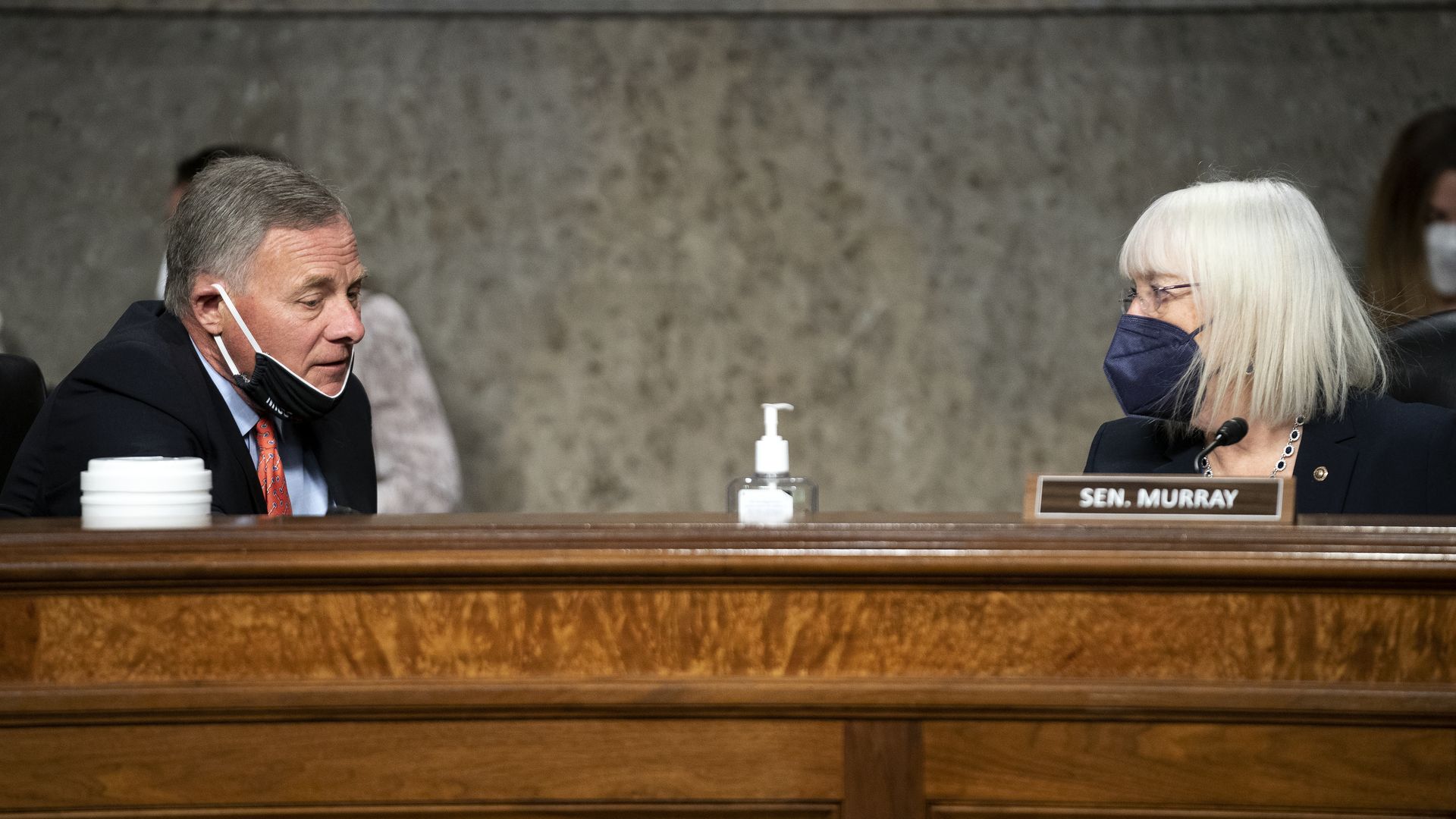Plus, five-year deal renews FDA programs | Friday, September 23, 2022
| | | | | | | Presented By PhRMA | | | | Axios Vitals | | By Adriel Bettelheim · Sep 23, 2022 | | We made it to Friday, Vitals gang. I'll be filling in for Tina for the next few days. Today's newsletter is 751 words or a 3-minute read. Situational awareness: The Biden administration today is awarding nearly $1.5 billion in grants to states and territories for treatments and recovery services to address the opioid crisis. | | | | | | 1 big thing: Drug pricing law a GOP target |  | | | Illustration: Shoshana Gordon/Axios | | | | Some key House Republicans are calling for the repeal of Democrats' newly-passed drug pricing measure if the GOP flips control of one or both chambers of Congress next year, Axios' Peter Sullivan and Victoria Knight write. Why it matters: The comments show Republicans are not giving up the fight against sweeping measures aimed at lowering prescription drug prices, and give a glimpse of what their health agenda could look like. What they're saying: "If the courts haven't gotten to it beforehand, yeah we've got to do our job and try to defend the Constitution," Rep. Morgan Griffith (R-Va.) told Axios, saying the law is an "unlawful taking." - "Because those drug provisions are so dangerous, by discouraging investment in life-saving cures, I would imagine that will be a top priority for Republicans in the new session," said Rep. Kevin Brady (R-Texas), the top Republican on the House Ways and Means Committee.
Between the lines: Democrats view the drug pricing measure in the Inflation Reduction Act as a clear political winner and are essentially daring Republicans to say they want to repeal it. And not all Republicans were adamant about tackling the issue in a divided Washington. - "We need to be realistic," Rep. Brett Guthrie (R-Ky.), the top Republican on the Energy and Commerce health subcommittee, told Axios. "I mean you've got to get the president to sign it," he added.
Go deeper. |     | | | | | | 2. Deal reached to renew FDA user fees |  | | | Sen. Richard Burr speaks to Sen. Patty Murray before a Senate committee hearing to examine the federal response to COVID-19 on Jan. 11. Photo: Greg Nash/POOL/AFP | | | | Senate and House health committee leaders on Thursday reached an agreement to renew programs that fund key Food and Drug Administration programs for another five years, Victoria and Peter report. Why it matters: Without congressional action by the end of the month, the FDA would have started sending out furlough notices to staff and slowed down critical work like drug approvals. - The deal covers user fees that industries pay to fund drug, device and other product evaluations and is due to be attached to a stopgap spending bill to keep the government funded into December.
Details: The agreement tracks with Republicans' wishes for a "clean" bill without policy changes that would have increased FDA oversight of dietary supplements, cosmetics, infant formula and lab-developed tests, and would have tweaked a controversial fast-track drug approval process. The big picture: Those items might have to wait until the next Congress, assuming Democrats and Republicans can find common ground. Don't forget: A 2019 Pew Charitable Trusts survey found strong public support for requiring supplement manufacturers to give the FDA a list of products they make and their ingredients. |     | | | | | | 3. White House unloads on Graham's abortion ban | | Democrats are stepping up efforts to portray Sen. Lindsey Graham's proposed 15-week nationwide abortion ban as a de facto criminalization of certain forms of reproductive health care, Axios' Oriana Gonzalez writes. Driving the news: The White House's Gender Policy Council said in a memo obtained by Axios that the ban would "create a nationwide health crisis" and open the door to "doctors being thrown in jail if they fulfill their duty of care to patients according to their best medical judgment." - The American College of Obstetricians and Gynecologists this week expressed "grave concerns" to the Biden administration about the legislation, which it said "is not grounded in science and medical evidence."
The big picture: Since Roe v. Wade was overturned, Democrats have made abortion access a central campaign plank. - Sen. Elizabeth Warren (D-Mass.) has launched an investigation to look into the ban's potential health ramifications.
Catch up fast: Graham introduced the ban this month, to the surprise of some of his Republican colleagues who have distanced themselves from the issue ahead of the midterms. |     | | | | | | A message from PhRMA | | How insured Americans navigate unclear insurance coverage | | |  | | | | According to new findings, insured Americans favor policy solutions that improve their ability to navigate and access their care while lowering their out-of-pocket costs. An example: Tackling the barriers introduced by insurers and middlemen like pharmacy benefit managers. Read more. | | | | | | 4. Data du jour: Drug treatment amid COVID-19 |  Admissions to drug treatment facilities fell by more than 23% during the pandemic as substance use disorders and overdose deaths rose, a new analysis published in the Journal of the American Medical Association shows. What they found: Almost every state saw fewer patients seek treatment during 2020 than in previous years. - Native Americans accounted for the largest drop in admissions, and they also had the largest increase in overdose deaths during the pandemic.
- The authors noted more work is needed to examine reasons for the differences, including pandemic-driven shelter-in-place policies and bans on elective procedures.
|     | | | | | | 5. Catch up quick | | 💊 Swiss pharma giant Novartis is making growth in the U.S. a top priority, despite new laws to rein in drug prices. (Reuters) 💵 The Global Fund to Fight AIDS, Tuberculosis and Malaria fell short of hitting its $18 billion replenishment target. (Devex) ⚰️ A growing piece of the funeral home industry is being acquired by private equity-backed firms attracted by high profit margins. (Kaiser Health News) |     | | | | | | A message from PhRMA | | Americans want policy reforms that improve their insurance | | |  | | | | Did you know 39% of insured Americans say they don't understand what's covered by their insurance? Health insurance coverage should be predictable and transparent, and insured Americans agree. Learn more from PhRMA's latest Patient Experience Survey report. | | | | A big thank you, as always, to Bryan McBournie for copy editing the newsletter. |  | | Why stop here? Let's go Pro. | | | | | | Axios thanks our partners for supporting our newsletters. If you're interested in advertising, learn more here.
Sponsorship has no influence on editorial content. Axios, 3100 Clarendon Blvd, Arlington VA 22201 | | | You received this email because you signed up for newsletters from Axios.
Change your preferences or unsubscribe here. | | | Was this email forwarded to you?
Sign up now to get Axios in your inbox. | | | | Follow Axios on social media:    | | | | | |
No comments:
Post a Comment